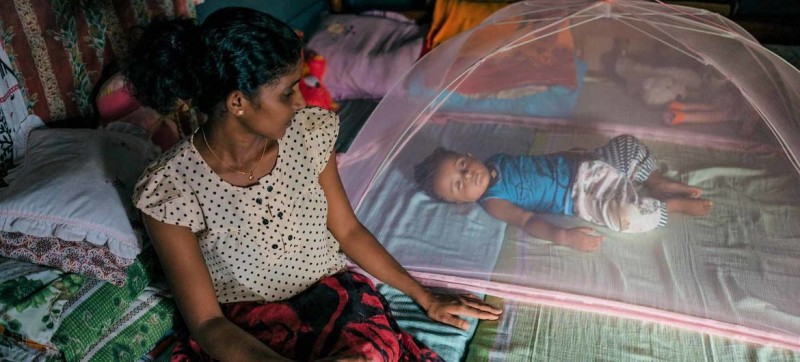UNFPA-supported reproductive health clinics in Sri Lanka are providing women with access to doctors and family planning care services. The UN sexual and reproductive health agency, UNFPA, is leading efforts to protect women and girls’ rights to give birth safely and live without gender-based violence, according to a statement issued on Monday. “UNFPA is committed to meeting the critical health and protection needs of women and girls,” said Kunle Adeniyi, UNFPA representative in Sri Lanka. “Our focus is to strengthen sexual and reproductive health and gender-based violence response services to reduce the long-term repercussions of the current crisis.”
.@UNFPA is on the ground working to address the urgent needs of women and girls in #SriLanka amidst the #EconomicCrisisLK and has launched an appeal for $10.7 million to reach 2 million of the most vulnerable.
More info➡️ https://t.co/K12m7V64Uv pic.twitter.com/xXFcqq1AnG
— UNFPA Sri Lanka (@UNFPASriLanka) August 8, 2022
Appealing for at $10.7 million, UNFPA hopes to coordinate interventions with other UN agencies as well as international and local partners to provide more than two million women and girls in Sri Lanka with better sexual and reproductive healthcare.
Teetering on the edge
Sri Lanka is currently experiencing its worse socio-economic crisis since gaining independence in 1948.
Amidst debilitating power shortages and a lack of critical resources, the country’s once robust healthcare system is now teetering on the edge of collapse.
The decline has severely impacted sexual and reproductive health services, including maternal healthcare and access to contraception.
“The current economic crisis in Sri Lanka has far-reaching consequences for women and girls’ health, rights and dignity,” said UNFPA Executive Director Natalia Kanem.
Specifically, access to key services for survivors of gender-based violence has been compromised.
Women’s unique needs
A UN survey in May indicated that women and girls are increasingly more vulnerable to violence as access to healthcare, police, shelter, and hotlines, is declining.
And the UN agency estimates that 60,000 pregnant Sri Lankan women may require surgical interventions over the next six months.
UNFPA is committed to ensuring that Sri Lanka has the resources to care for these mothers.
“Right now, UNFPA’s priority is to respond to their unique needs and safeguard their access to lifesaving healthcare and protection services,” said the UNFPA chief.
Taking action
As part of its appeal, UNFPA plans to distribute medicines, equipment and supplies – including for emergency and obstetric care and the clinical management of rape and domestic violence – to meet the priority reproductive health needs of 1.2 million people.
It will also provide more than 37,000 women with cash and voucher assistance for reproductive health and protection services; ensure that 500,000 women receive information on warning signs during pregnancy; and strengthen the capacity of 1,250 midwives.
Moreover, the UN agency aims to support 10 shelters to expand services for survivors of gender-based violence and provide 286,000 women and girls with information on gender-based violence prevention along with available services and support.
UNFPA elaborated that it would also support 12,500 women with livelihood programming to reduce the risks of gender-based violence; provide 4,000 adolescent girls with menstrual hygiene supplies; and lead and coordinate the strengthening of prevention, protection and referral systems for survivors of gender-based violence.
UNFPA’s response is part of the Humanitarian Needs and Priorities Plan launched by the UN in Sri Lanka calling for $47 million to support 1.7 million people between June and September.

